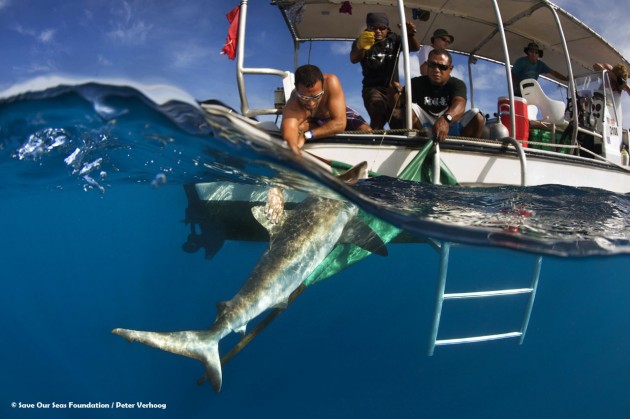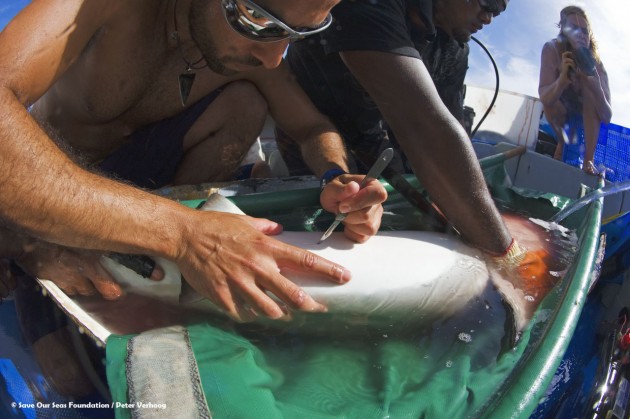Interview with shark researcher, Gabriel Vianna
The Save Our Seas Shark Centre welcomed shark researcher Gabriel Vianna, to stay with us at the centre from 6 to 9 February 2012. Here’s more details about his visit to South Africa.
1) Who are you, where are you from, and what are you studying?
My name is Gabriel Vianna, I’m originally from Brazil, but I’ve been living in Australia for the past five years. I live in Perth, Western Australia, where I’m currently conducting my research on ecology of reef sharks and the socio-economic aspects of the shark-diving industry in Palau, Micronesia.
2) Is this your first trip to SA? What are your reasons for visiting? How have you been enjoying it? What have you been doing while you’re here?
South Africa is a famous place among shark divers, mainly because of the number of great whites and behaviour that they display in False Bay. But recently, the possibility to go diving with really interesting species such as ragged tooth, tiger, sevengill, blue and mako sharks has boosted the reputation of SA as a shark-diving destination. I’m naturally curious about sharks and like to spend time in the water diving with them. From a researcher point of view, I’ve been very interested in learning a bit more about the shark-diving industry in SA as I believe that, if well managed, the socio-economic benefits from this industry can be used as a strong argument for shark conservation. I tried to come to SA before but I’d never been able to make it until now. I’m glad that it worked this time. Now, I’ve been spending my time in the Kalk Bay area doing some good shark dives, but I also took some time to explore the Western Cape area.
3) Were there any highlights from your trip you’d like to share with us?
The highlight of my trip definitely was the dive with blue sharks! I’ve spent a bit of time in the water with other sharks, including oceanic species, but I had never been in the water with a species of shark as curious and interactive as the blues. We had 10-12 sharks with us during the dive and even though we were in oceanic waters, where we couldn’t see the bottom, it was a very relaxing dive, mainly because of the “relaxed” behaviour of the sharks.
4) Did the visit help give any insights to your research?
Definitely! Part of my research consists in describing the socio-economic benefits and impacts of the shark-diving industry to small island nations of the Indo-Pacific. SA is pretty big in terms of shark diving. However, this industry is not developed in the same way through the country therefore, the potential of shark diving as an instrument for environmental education and shark conservation varies among places. Seeing this and talking to industry representatives gave me a snapshot of different stages of “maturation” that a shark diving industry usually goes through. It was also very interesting to observe the different attitude of the shark-diving operations towards shark conservation and animal welfare.


